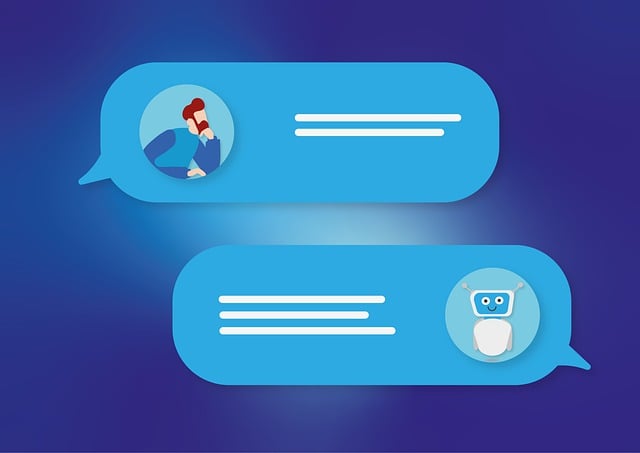AI chatbots and assistants have transformed customer service by offering 24/7 availability, instant responses, and enhanced experiences while reducing costs. However, their rapid evolution raises ethical concerns like fairness, transparency, and accountability, which require robust frameworks. These frameworks should ensure privacy, data security, and mitigate algorithmic bias through user consent, secure data handling, regular audits, and continuous learning. By prioritizing transparency, fairness, and accountability, AI chatbots and assistants can provide ethical, beneficial customer service while respecting individual autonomy and maintaining trust.
In the rapidly evolving landscape of AI, chatbots and assistants are transforming how businesses interact with their customers. This article delves into the critical need for ethical frameworks in AI customer service, focusing on AI chatbots. We explore the profound impact these technologies have on user experiences and the importance of incorporating ethical considerations during development. By analyzing key components of an effective framework, we provide insights into implementing and evaluating ethical standards in AI-driven customer interactions.
- Understanding AI Chatbots and Their Impact on Customer Service
- The Importance of Ethical Frameworks in AI Assistant Development
- Key Components of an Ethical AI Chatbot Framework
- Implementing and Evaluating Ethical Standards in AI Customer Service
Understanding AI Chatbots and Their Impact on Customer Service

AI chatbots and assistants have transformed customer service, offering 24/7 availability and instant responses. They handle a wide range of tasks from answering simple queries to providing complex support, enhancing user experience and reducing operational costs for businesses. However, this rapid evolution also brings ethical considerations to the forefront. As AI chatbots become more sophisticated, they must be designed with care to ensure fairness, transparency, and accountability in their interactions with users.
The impact of AI assistants on customer service is profound. They can provide personalized support, learn from user interactions, and continuously improve their performance. However, concerns around privacy, data security, and algorithmic bias necessitate robust ethical frameworks. Developers must prioritize user consent, secure data handling practices, and regular audits to mitigate risks and ensure these technologies serve users ethically and responsibly.
The Importance of Ethical Frameworks in AI Assistant Development

In the rapidly evolving landscape of artificial intelligence (AI), the development of AI assistants and chatbots has revolutionized customer service across various industries. As these intelligent systems become more integrated into daily interactions, establishing robust ethical frameworks becomes paramount. Ethical considerations are essential to ensure that AI assistants operate within moral boundaries, respect user privacy, and foster transparency in their operations.
Without clear guidelines, AI assistants could inadvertently perpetuate biases present in their training data or make decisions that violate user rights. An ethical framework provides a structured approach to navigate these complexities, ensuring that the technology respects individual autonomy, promotes fairness, and maintains accountability. This is particularly crucial in the context of AI customer service, where assistants often handle sensitive information and play a pivotal role in shaping customer experiences.
Key Components of an Ethical AI Chatbot Framework

An ethical framework for an AI chatbot or AI assistant is a crucial construct to ensure responsible and beneficial interactions with users, especially in AI customer service settings. The foundation of this framework should include transparency and accountability. Users have a right to know when they are interacting with an AI system, its capabilities, limitations, and the potential outcomes of their conversations. This transparency builds trust and empowers users to make informed choices about how they engage with the technology. Moreover, developers and companies deploying these AI assistants must be accountable for the chatbot’s actions, ensuring that any decisions or recommendations made are fair, unbiased, and respectful of user privacy.
Another critical component is fairness and non-discrimination. AI chatbots should be designed to serve all users equitably, without perpetuating or exacerbating existing social biases. Developers must carefully curate and prepare training data to avoid discriminatory outcomes and ensure the assistant’s responses remain neutral and inclusive. Additionally, mechanisms for user feedback and ongoing monitoring are essential to identify and rectify any ethical slip-ups, ensuring that the AI chatbot remains aligned with ethical standards and continually improves its performance in customer service roles.
Implementing and Evaluating Ethical Standards in AI Customer Service

Implementing ethical standards in AI customer service is paramount as AI chatbots and assistants become increasingly integrated into businesses. These standards should encompass transparency, ensuring customers are aware they are interacting with an AI rather than a human agent. This openness fosters trust and enables users to make informed choices about their data sharing. Additionally, fairness and non-discrimination are crucial; AI models must be trained on unbiased data to prevent perpetuating or exacerbating existing societal biases. Regular audits and evaluations of these models are essential to identify and rectify any discriminatory tendencies.
Evaluation of ethical implementation involves comprehensive testing, including scenario simulations and user feedback loops. Metrics such as decision transparency, impact on user satisfaction, and equitable outcome distribution should be measured. Continuous monitoring ensures that the AI assistant or chatbot remains aligned with established ethical guidelines, allowing for swift adjustments to maintain integrity in customer interactions.






